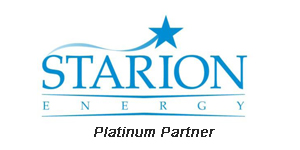On May 1-2, 2017, Federal Energy Regulatory Commission (FERC) staff will hold a technical conference to discuss the impact of state policies on wholesale energy and capacity markets operated by the Eastern Regional Transmission Organizations (RTOs) and Independent System Operators (ISOs). According to the Notice of Technical Conference, “Over the years, the rules underpinning competitive wholesale markets have evolved to address a myriad of issues while ensuring the reliable delivery and sale of electricity at just and reasonable rates. In recent years, there has been increased interest by state policy makers to pursue policies that prioritize certain resources or resource attributes. Because the wholesale competitive markets, as currently designed, select resources based on principles of operational and economic efficiency without specific regard to resource type, there is an open question of how the competitive wholesale markets, particularly in states or regions that restructured their retail electricity service, can select resources of interest to state policy makers while preserving the benefits of regional markets and economic resource selection.”
The technical conference is intended to foster “further discussion regarding the development of regional solutions in the Eastern RTOs/ISOs that reconcile the competitive market framework with the increasing interest by states to support particular resources or resource attributes.” For more information, visit the FERC website.
For information on the discussions taking place in New England on Integrating Markets and Public Policy (IMAPP), visit the New England Power Pool (NEPOOL) website. IMAPP discussions, launched by NEPOOL in August 2016, are intended to identify potential changes to the region’s wholesale electricity markets to accommodate the public policy goals of the New England states, namely their carbon reduction and renewable energy goals.
Last month, the Chair of NEPOOL’s IMAPP process announced that further meetings on IMAPP will be deferred until May 2017 to give ISO New England time to identify a conceptual market approach that could be implemented in the near term and to provide states additional time to further analyze the various long-term proposals discussed in the IMAPP process to date.



 Jeffrey Gaudiosi opened the discussion with a look back at how energy was procured in the state of Connecticut after the electricity market deregulated in 1998. Deregulation allowed retail customers to choose a competitive supplier of electricity, but required the state’s electric distribution companies to continue to provide “Standard Service” and “Supplier of Last Resort Service” to customers who did not choose a competitive supplier. He explained that the legislature dictated how electricity was procured for these customers, requiring the utilities to employ a three-year laddering model for Standard Service power procurements. This procurement method involved a series of overlapping wholesale contracts extending over several years, which kept retail electricity prices relatively stable for consumers. This method worked well for many years, Gaudiosi explained, but fell out of favor when Standard Service rates reached record levels and prevented retail customers from taking advantage of declining wholesale electricity prices in the 2009-2010 timeframe.
Jeffrey Gaudiosi opened the discussion with a look back at how energy was procured in the state of Connecticut after the electricity market deregulated in 1998. Deregulation allowed retail customers to choose a competitive supplier of electricity, but required the state’s electric distribution companies to continue to provide “Standard Service” and “Supplier of Last Resort Service” to customers who did not choose a competitive supplier. He explained that the legislature dictated how electricity was procured for these customers, requiring the utilities to employ a three-year laddering model for Standard Service power procurements. This procurement method involved a series of overlapping wholesale contracts extending over several years, which kept retail electricity prices relatively stable for consumers. This method worked well for many years, Gaudiosi explained, but fell out of favor when Standard Service rates reached record levels and prevented retail customers from taking advantage of declining wholesale electricity prices in the 2009-2010 timeframe. David Ferro rounded out the discussion with a look at how consultants and brokers are changing their power procurement strategies based on what is happening in the marketplace. He highlighted natural gas storage volumes as one of the primary drivers of wholesale electricity prices in the U.S. In New England, he pointed to increasing capacity and transmission costs impacting wholesale electricity prices, and discussed the significant turnover in the generation fleet away from coal- and oil-fired generation toward natural-gas fired generation. This, he said, will put additional pressure on the natural gas infrastructure serving the region, which can have a significant impact on wholesale electricity prices. He concluded with a list of seven steps for developing an energy supply strategy – for facility managers, supply chain professionals, and those involved in managing energy procurement strategies. Technology advancements, he said, will be extremely important in creating a “sustainable energy community” where consumers have more control over their energy supply.
David Ferro rounded out the discussion with a look at how consultants and brokers are changing their power procurement strategies based on what is happening in the marketplace. He highlighted natural gas storage volumes as one of the primary drivers of wholesale electricity prices in the U.S. In New England, he pointed to increasing capacity and transmission costs impacting wholesale electricity prices, and discussed the significant turnover in the generation fleet away from coal- and oil-fired generation toward natural-gas fired generation. This, he said, will put additional pressure on the natural gas infrastructure serving the region, which can have a significant impact on wholesale electricity prices. He concluded with a list of seven steps for developing an energy supply strategy – for facility managers, supply chain professionals, and those involved in managing energy procurement strategies. Technology advancements, he said, will be extremely important in creating a “sustainable energy community” where consumers have more control over their energy supply. 

